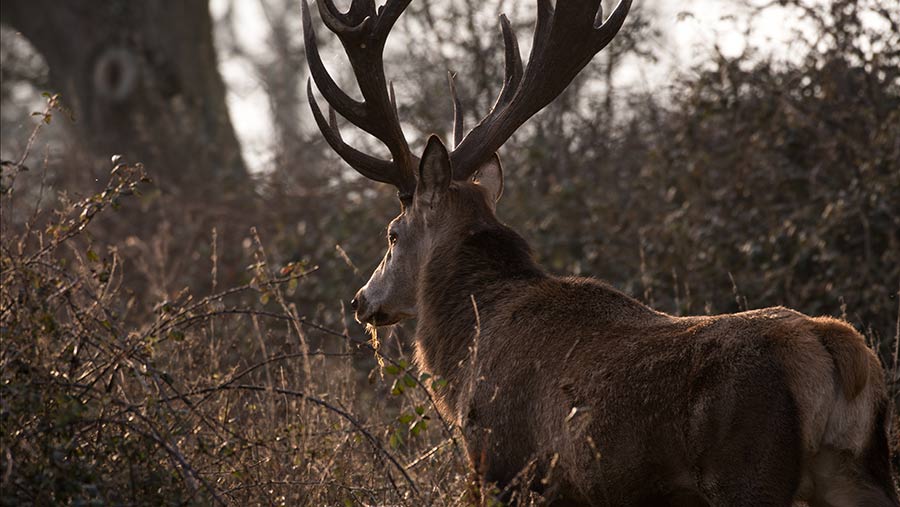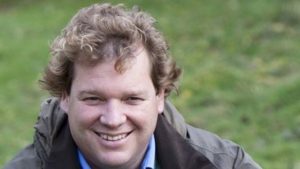Farmers must weigh up rewilding risk and reward
 © Royal Agricultural University
© Royal Agricultural University Farmers and landowners will need convincing that rewilding – bringing back iconic species such as wild lynx and boar into the countryside – is the right decision for their businesses post-Brexit.
Christopher Price, director of policy at the Country, Land and Business Association (CLA), issued the blunt warning while speaking at a recent rewilding conference at the Royal Agricultural University, in Cirencester.
See also: Scotland is best UK location for lynx reintroduction, says ecologist
Mr Price told delegates that the starting point for any landowner is always “the need to drive income from the land and to retain its capital value”. But financial and legal constraints could deter landowners from introducing rewilding projects.
“Most landowners, particularly traditional ones, will justify their success in life by the extent to which they pass on something that is as good as that which they inherited,” he added.
“I’m talking about succession. You want to be able to leave your children and grandchildren something.”
Non-farming income streams
Mr Price said many farmers already make significant money from “green” or eco-tourism – and he predicted that such projects could increase after Brexit. Non-agricultural areas for shooting could provide another income stream, he suggested.
But landowners will be wary about entering into rewilding projects, Mr Price suggested, as planting lots of trees or letting scrub grow back on land would likely see its value decrease.
The inheritance tax position (agricultural property relief and business property relief) would also be a major consideration. “If you want to pass something on, you don’t want to get rid of it to pay the tax as a result of doing so,” said Mr Price.
And landowners would be wary about changing the use of land and deciding the types of species to introduce. “You don’t want species that can attack people, or break through hedges and cause disruption,” he added.
Mr Price said farmers and landowners are already starting to think about what environmental features they could deliver. But they will need financial and practical support from the UK government to help their businesses adjust from a subsidised world to a more market-faced world.
“There will be a whole new way of thinking, a whole new range of opportunities, which will make for an exciting part of that new world. Rewilding will have a significant part to play in all that,” he added.
Public money for public goods
Defra secretary Michael Gove has confirmed that the common agricultural policy will be replaced in the UK by a new system of “green” farming subsidies post-Brexit, which will involve paying farmers “public money for delivering public goods”.
Defra’s new Environmental Land Management (ELM) scheme will incentivise farmers for planting woodland, providing new habitats for wildlife, increasing biodiversity, and contributing to improving water quality.
Mr Gove has also indicated that part of ELMs could involve roughing up or rewilding some of the land. Or, as he put it, “returning cultivated land to wildflower meadows or other more natural states”.
The national organisation Rewilding Britain has set an ambitious target to establish rewilding areas of at least 10,000ha in England, Wales and Northern Ireland and 100,000ha plus in Scotland.
It says the uplands are likely to provide the greatest opportunity, with the Lake District, Peak District and also Kielder Forest possible areas.
But farming organisations, including the NFU, have warned that rewilding large swathes of the UK could have a damaging effect on domestic food security.
What is rewinding?
The director of Rewilding Britain, Alistair Driver, defined rewilding as the “large-scale restoration of ecosystems towards the point that nature is allowed to take care of itself”.
In the UK, rewilding would involve the reintroduction of species such as lynx and beavers, while allowing the land to manage itself, free from interventionist land practices.
Prof Driver said the group’s vision was to see to see at least 1million ha supporting natural ecological processes over the next 100 years.
Case study: Knepp Estate

Charlie Burrell
Knepp Estate was once intensively farmed for arable and dairy before it was given over to a pioneering rewilding project in 2000.Using free-roaming grazing animals as drivers, and the restoration of natural watercourses, the project has seen extraordinary increases in wildlife, including some incredibly rare species.
Knepp is now a breeding hotspot for critically endangered nightingales and turtle doves. Peregrine falcons, ravens, red kites, sparrowhawks, lesser-spotted woodpeckers, lapwings, skylarks, woodlarks, house sparrows, yellowhammers and woodcock are also breeding at the 1,416ha estate in Horsham, West Sussex.
It also has the largest population of purple emperor butterflies in the country.
The estate is still farming, although less extensively, producing 75 tonnes of low-input, organic, pasture-fed meat a year from its free-roaming herds. Wildlife tourism also provides another significant income stream.
Knepp’s owner, Charlie Burrell – the inspiration behind the rewilding project – said: “The turtle doves are now pouring back in from nothing. Purple emperor butterflies are also one of the most astonishing successes of the project.
“This year, we achieved our highest count yet – 388 emperors, beating the previous record of 143 in 2017.”
